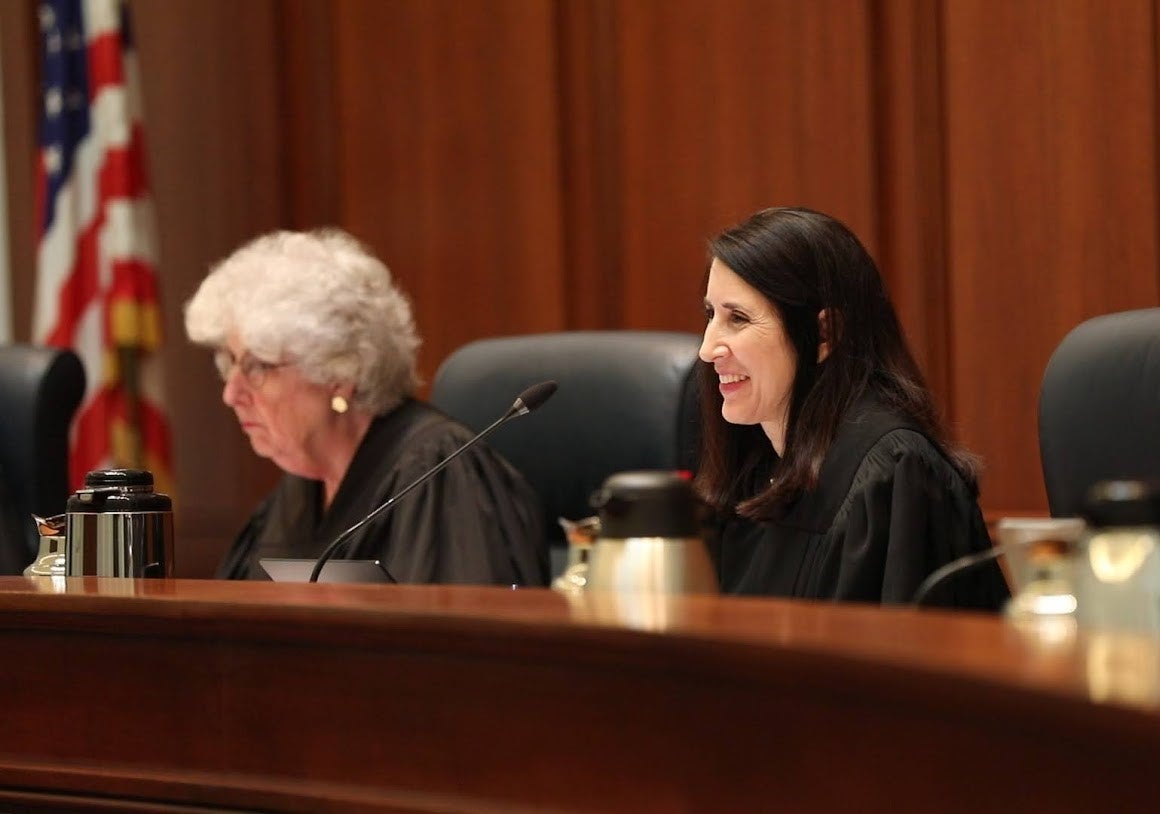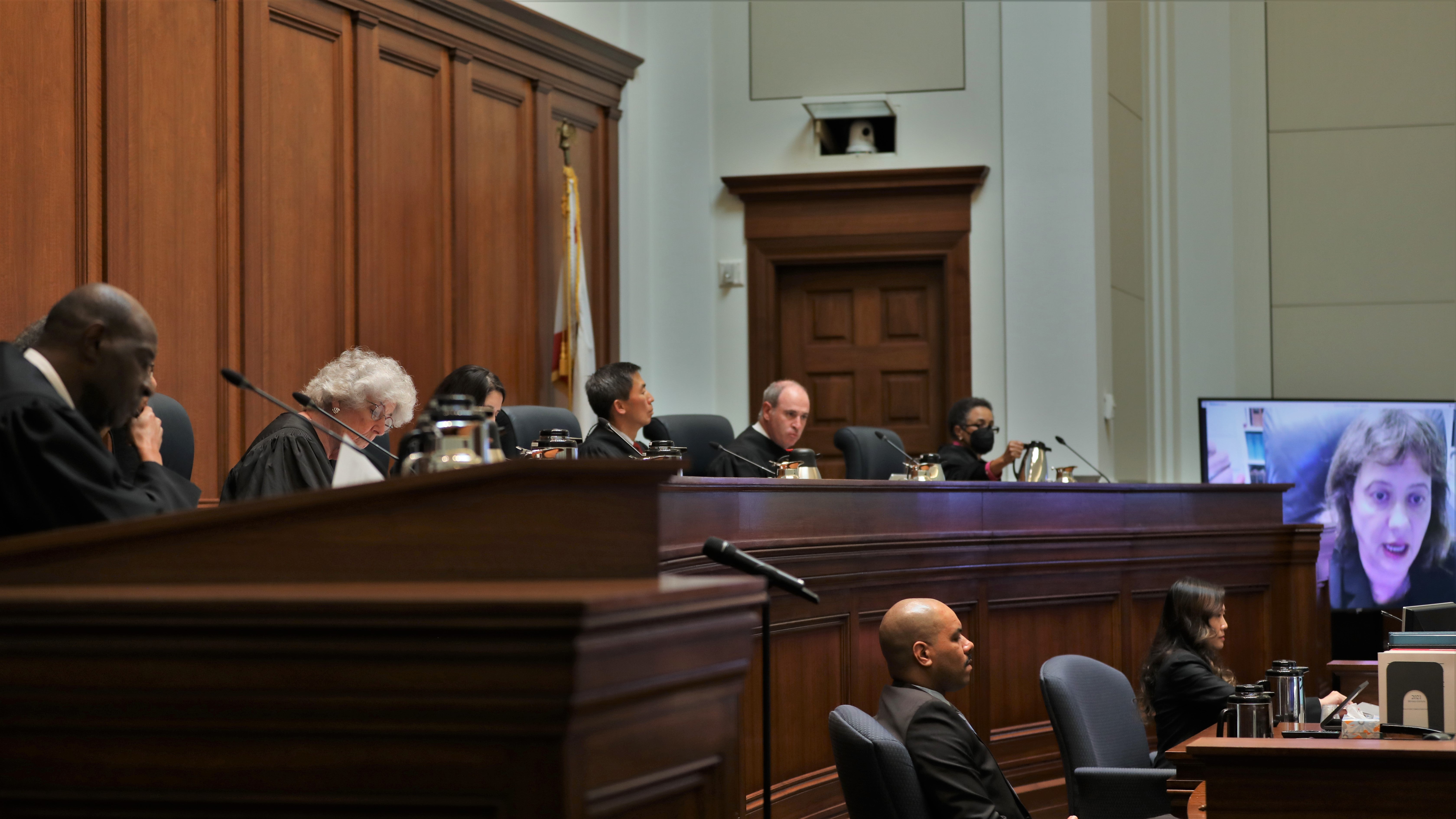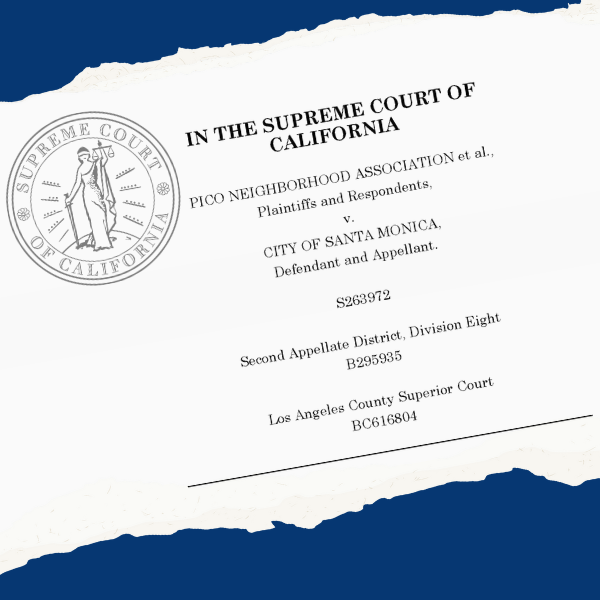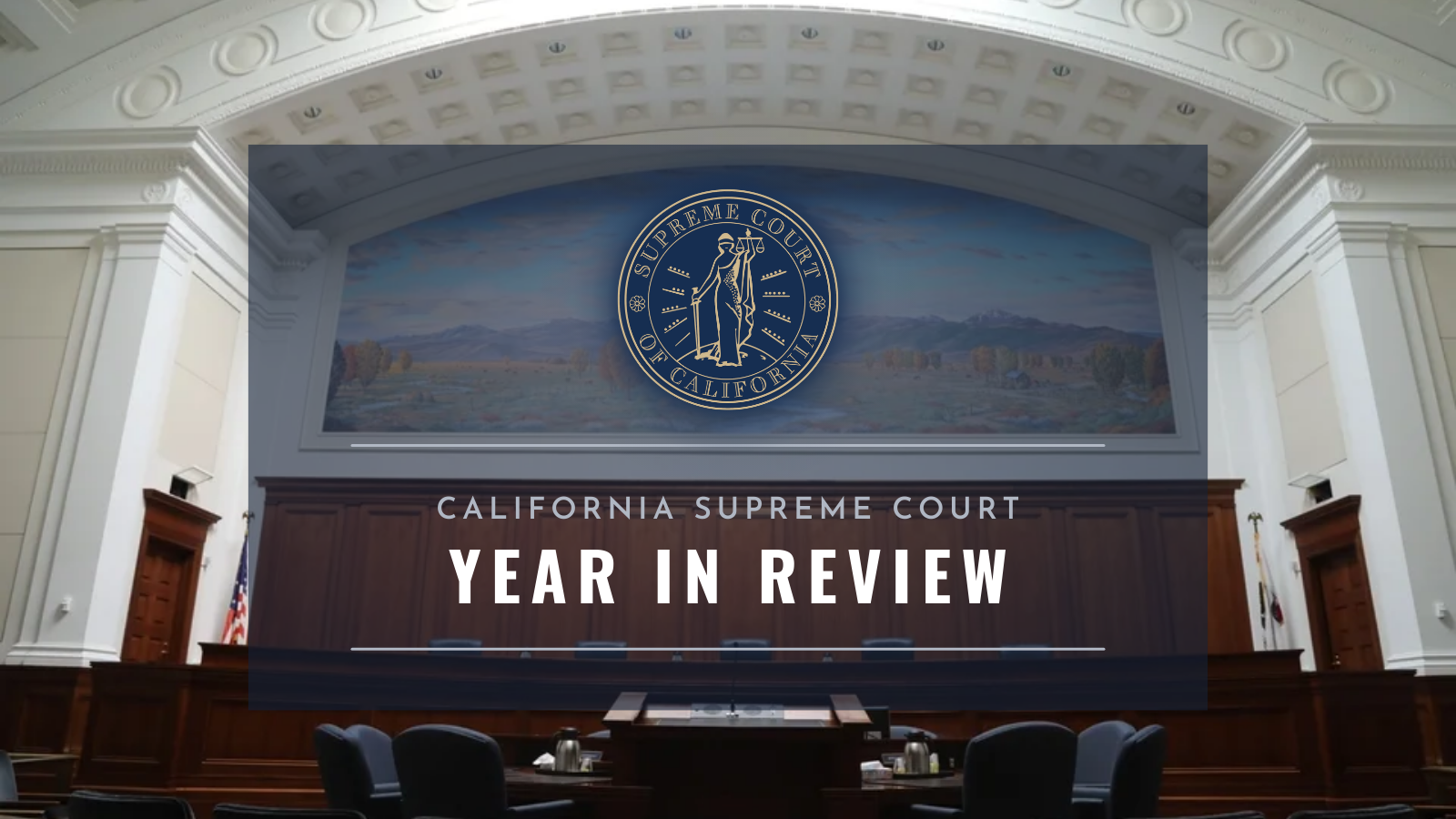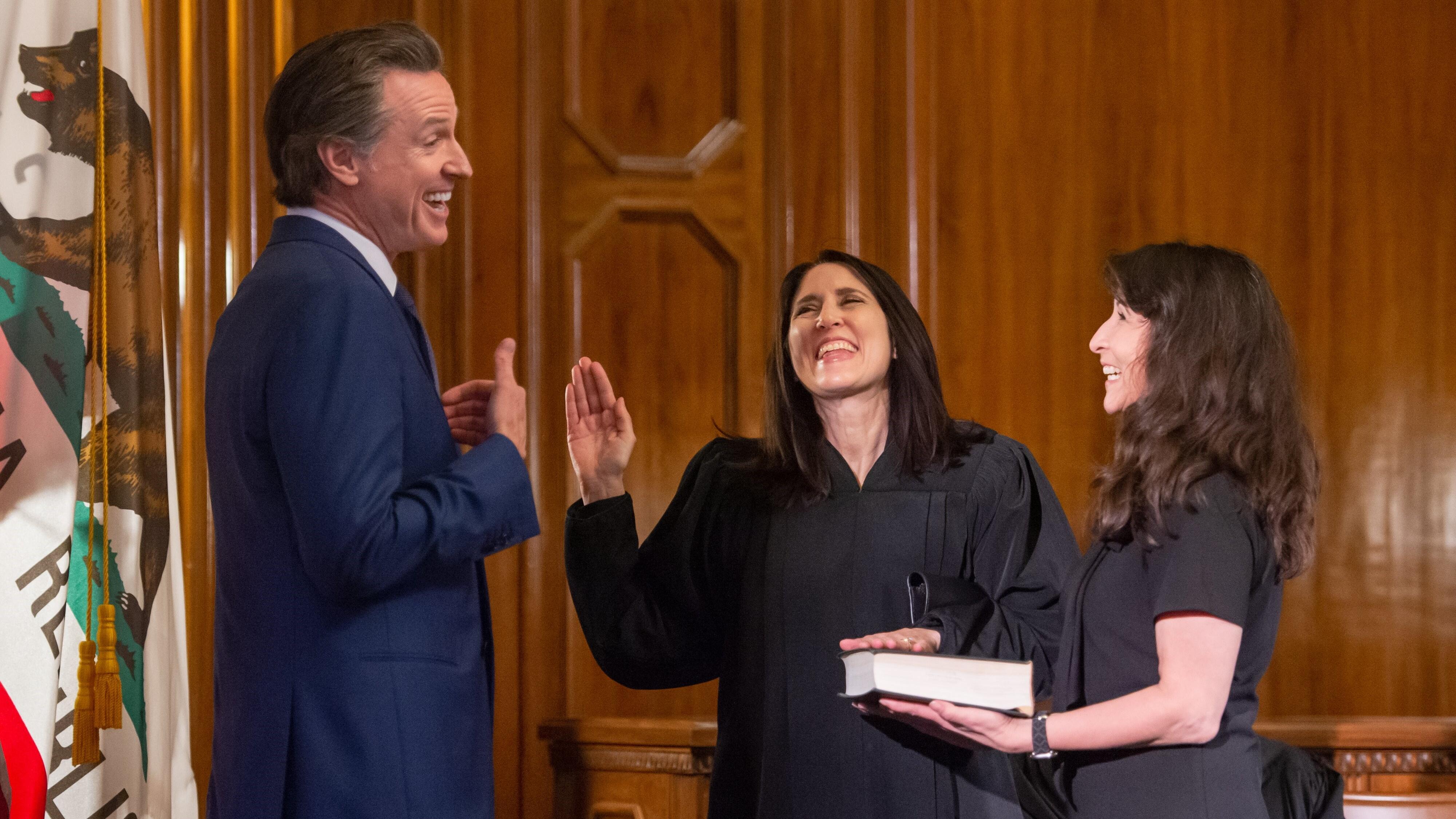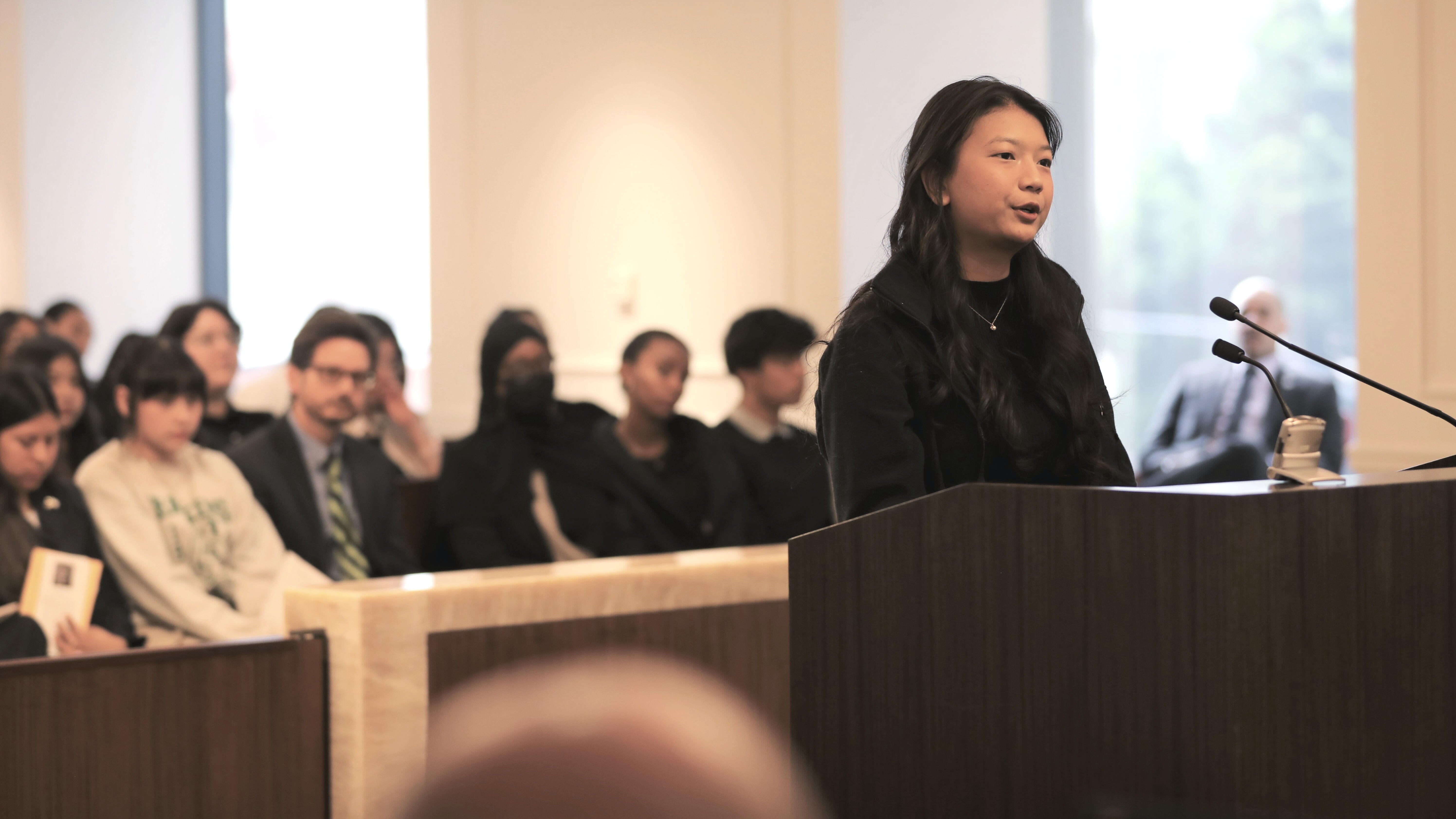Year in Review: California Supreme Court
New Year, New Court
In January, the court experienced two history-making transitions. Chief Justice Patricia Guerrero, who first joined the court in March 2022 as an associate justice, was sworn in as California’s first Latina chief justice after being overwhelmingly confirmed by the voters in the November general election. Justice Kelli Evans, formerly an Alameda County judge, was sworn in at the same time and became the first openly lesbian justice to sit on the state’s high court.
Three other Supreme Court justices were also on the ballot in November. Justices Goodwin Liu, Joshua Groban, and Martin Jenkins all easily won new 12-year terms on the court.
In a passing of the gavel ceremony in December, incoming Chief Justice Guerrero honored outgoing Chief Justice Tani Cantil-Sakauye for her 32 years of service to the courts, including 12 years as chief justice.
Chief Justice Guerrero thanked the outgoing chief justice for her “steady and visionary leadership,” including “important improvements and reforms in the quality of justice that we provide to the diverse communities we serve.”
As Chief Justice Guerrero accepted the gavel, she pledged her commitment “to maintaining the highest standards of excellence in the judicial branch, always guided by our mission of serving the public.”
The Work of the Court
The California Supreme Court issued 55 written majority opinions during the September 2022–August 2023 court year (see chart and "High-Profile Cases" below).
The court received 5,420 filings, including 2,860 petitions for review arising out of cases from California’s six appellate court districts, and resolved 5,829 filings, including 3,152 petitions for review.
Resuming In-Person Oral Argument
In November, the justices and attorneys resumed in-person oral argument in the court’s San Francisco courtroom after being fully remote during the COVID-19 pandemic. With the benefit of new technology, the court continues to allow attorneys to appear remotely via videoconference upon request.
The court also completed technology upgrades to its Los Angeles and Sacramento courtrooms to facilitate livestreaming and remote oral arguments. The upgrades will allow the court to resume its practice of hearing oral argument in these courtrooms in the upcoming court year.
Bringing the Court to the Community
After a hiatus during the pandemic, the court also revived its tradition of hosting special community outreach oral argument sessions in venues around the state. In June, the court travelled to San Diego and hosted 80 students from local area high schools, including a school serving unhoused youth, at a special oral argument session. Other attendees included students aspiring to be the first in their families to earn a college degree and participants in a high school law academy drawing from San Diego’s diverse communities.
“Our purpose is to bring the court to the community,” said Chief Justice Guerrero, and “educate the students about the role of the California Supreme Court and the importance of an independent and impartial judiciary.”
The justices remained on the bench after oral argument to answer questions about their career paths, the hardest parts of their jobs, and how they approach decision-making on the state’s highest court.
The court previously hosted more than a dozen student outreach programs to allow students to participate in and learn from the judicial process. Starting next year, the court plans to hold a special oral argument session outside San Francisco, Los Angeles, or Sacramento each October.
Strengthening State Bar Protections
The court issued several directives to the State Bar of California to strengthen ethics guidelines and conflict-of-interest oversight.
The court approved the launch of a Client Trust Account Protection Program, which requires all licensed attorneys to register information about their management of client trust funds and authorizes audits to ensure that attorneys stay in compliance with applicable rules. The court also approved amendments to the California Rules of Professional Conduct that require attorneys to disburse any entrusted funds or property within 45 days after their client’s interest in them becomes undisputed.
Chief Justice Guerrero also directed the State Bar to expedite new updates to the conflict of interest code governing members of the Board of Trustees. The court returned to this topic last month, seeking further revisions to clarify trustees’ duties regarding disclosure and disqualification. In addition, the court directed the State Bar to propose new rules requiring the screening of candidates for the Board of Trustees and the State Bar Court for potential conflicts of interest.
The court also approved a new rule that compels attorneys to report any lawyer who commits misconduct, and directed the State Bar to abolish its informal practice of not requiring attorneys ordered suspended for 90 days or less to inform their clients, the courts, and adverse parties of the suspension.
High-Profile Cases
In Pico Neighborhood Association v. City of Santa Monica, the court weighed in on the California Voting Rights Act. This statute allows plaintiffs to challenge at-large election regimes that dilute the electoral power of a protected class of voters. The court found that under this law, a plaintiff who has established the existence of racially polarized voting in a system of at-large elections does not also need to prove that a protected class would constitute a majority or a near majority within a proposed voting district; the plaintiff need prove only that the protected class would have the potential to elect a preferred candidate under an alternative lawful electoral system.
The court answered a question posed by the Ninth Circuit Court of Appeals in Raines v. U.S. Healthworks Medical Group: Can businesses that perform employment-related tasks, such as employment screening, be held directly liable for discrimination under state law? The court held that workers can sue third-party agents in appropriate circumstances.
In Leon v. County of Riverside, the court ruled that a provision within the Government Claims Act providing governmental immunity for “instituting or prosecuting any judicial or administrative proceeding” does not “ broadly immunize police officers or other public employees for any and all harmful actions they may take in the course of investigating crime.” Construing this provision as “providing immunity against liability for claims of injury based on tortious or wrongful prosecution,” the court held that it did not extend to a claim for the negligent infliction of emotional distress arising out of allegedly inappropriate conduct by police during an investigation that did not lead to charges.
The court held in Adolph v. Uber Technologies, Inc. that employees who agree to arbitrate their individual Labor Code claims maintain statutory standing to pursue claims on behalf of other employees under California’s Private Attorneys General Act.
Summary of Key Court Year Statistics
[September 1, 2022 – August 31, 2023] (pdf)
|
Action/Category |
Number |
|---|---|
|
Opinions |
55 |
|
Civil Cases |
23 |
|
Criminal Cases |
27 |
|
Death Penalty Cases |
5 |
|
Filings |
5,420 |
|
Petitions for Review |
2,860 |
|
Civil Appeals & Writs |
976 |
|
Criminal Appeals & Writs |
1,882 |
|
Death Penalty Appeals & Writs |
2 |
|
Original Proceedings |
2,560 |
|
Civil Writs & Other Matters |
274 |
|
Criminal Writs & Other Matters |
1,024 |
|
Executive Clemency |
11 |
|
Death Penalty Appeals & Writs |
5 |
|
Death Penalty Habeas Corpus |
8 |
|
State Bar Matters |
1,238 |
|
Dispositions |
5,829 |
|
Petitions for Review |
3,152 |
|
Civil Appeals & Writs |
974 |
|
Criminal Appeals & Writs |
2,175 |
|
Death Penalty Appeals & Writs |
3 |
|
Original Proceedings |
2,677 |
|
Civil Writs & Other Matters |
270 |
|
Criminal Writs & Other Matters |
1,154 |
|
Executive Clemency |
11 |
|
7 |
|
|
Death Penalty Habeas Corpus [Transferred] |
3 |
|
State Bar Matters |
1,232 |
|
Death Penalty Habeas Corpus |
|
|
Court of Appeal Opinions |
|
|
Court of Appeal Opinions |
|


